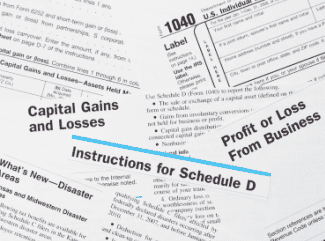Investors: Single Family or Multi-Family Properties?
by Sandy Shores, M & M Real Estate
 Investors always ask what kind of property they should buy.
Investors always ask what kind of property they should buy.
Many start the business thinking that a multi unit building is their best bet. My recommendation to them is to start with a single family house.
I do not invest in small multi family complexes. I prefer single family houses for rental units. I have had many investors that have experienced the best and worst of both types of properties.
I find that single family properties are easier to buy, sell, rent, own and manage than multi family units.
Single family units typically: (the following comparison is single family vs. small 4-10 unit multi family complexes)
- are easier and cheaper to buy
- are easier to get financed. Often times owner financing or creative financing is required.
- require less money down, because they are often cheaper than multi family.
- are easier to rent (provided they are affordable) as many don’t want to live in a multi family district.
- are easier to sell, and sell quicker. Often because there is a wider audience for the single family unit. A multi family property is usually restricted to investor buyers.
- appreciate more quickly than multi family units. Often this is due to the fact that the small multi family units are located in high rental areas with other such properties surrounding them. The value of the multi family is typically based on the amount of your rents. And often times rents are fixed to the rents on surrounding properties in the area.
- rents are usually higher than multi family units (for the same square footage). Often in multi family there is price fixing. A tenant that has been renting from you for several years may be paying less rent than today’s market rent. Thus, you must be cautious in the amount of rent you charge for new tenants coming in, as they will be talking to your old tenants.
Multi family units can be more difficult to manage than single family units because multiple tenants of yours are living in close proximity to each other. This can cause problems:
- As previously mentioned your tenants will talk to each other about how much they’re paying in rent.
- If you have one disgruntled tenant. they can wreak havoc with your other tenants.
- If one difficult tenant is breaking your rules, their bad habits can spill over to your other tenants.
- If this tenant begins breaking the law, it can carry over to your other tenants.
- Or you may find your tenants calling you regularly to report a difficult tenant. It can turn into a nightmare!
- I don’t care to have any of my tenants living close to each other because it gets very complicated
In my opinion small multi family units require micro managing. They are often more difficult to manage in that often they are lower priced rentals. Thus, it becomes more difficult to collect rents. Payment plans often must often be set up with tenants. And the landlord must be at the property more often than a single family unit.
Often the cash flow is more than in single family units. But, often the risk is higher. And often the vacancy rates and eviction rates are higher. I prefer to take my money and divide it between multiple single family units, located away from each other.
Let me twist this a different way though: if you have only one single family rental and it is empty, than you have 100% vacancy. But if you have a multi unit complex, and 1 unit out of 4 is empty you only have a 25% vacancy. That’s why I like to own multiple single family units.
I buy, sell, rent, own and manage single family rental houses. And I prefer them to small 4-10 unit multi family complexes.
I also do not buy condos or townhouses. There are associations that govern them, that can become rather difficult to deal with. And there is one more hand in your pocket, taking money away from you, the association fee. No thank you! (NOTE: PLEASE REMEMBER THIS POST IS WRITTEN BASED ON MY EXPERIENCES IN REAL ESTATE INVESTING HERE IN MELBOURNE FLORIDA. THIS INFORMATION MAY VARY DEPENDING ON THE AREA IN WHICH YOU YOU ARE LIVING AND YOUR CURRENT MARKET CONDITIONS.)
But commercial property specialist Sean Dresdnin of Ohio begs to differ:
I applaud some of the points Sandy made, but offer a few devil advocate points as well:
Multi-Family buildings can make your management more streamlined as you deal with 1 roof, 1 water heater/boiler, etc…
You mentioned the vacancy rates, which is quite true… 1 vacant single family = 100% whereas 1 out of 10 units for instance = 10%… Now if you hold true to the maxim of buying 10 single family properties around town, you are going to deal with:
1) More spread out management
2) Difficulty getting financing (especially in today’s market) (i.e – 10 individual loans versus 1)
3) Expanding on the financing problem also leads to the rebuttal of the point of less money down (i.e. 5% versus 20%) but again, if you are comparing 10 single family properties at 5% down payment versus 1 multi-family property at 20%, I think you’ll find a dramatic difference.
What do you think? Share your expertise with other investors by posting a comment below.
Sandy Shores is with M & M Real Estate in Brevard County, Florida, providing Residential, Investment & Relocations, serving all of your buying, selling and investing needs in Brevard County Real Estate. She also buys, sells, rents, owns & manages investment property.
Sean Dresdnin is with Pappas Realty Company in Akron, Ohio, and handles all aspects of Commercial Real Estate including, Retail, Apartments, Multi-Family, Office, Industrial, Vacant Land, Businesses, and Shopping Centers.
American Apartment Owners Association offers discounts on products and services related to your commercial housing investment including REAL ESTATE FORMS, tenant debt collection, tenant background checks, insurance and financing. Find out more at www.joinaaoa.org.
Learn how electronic payment technology has become easy and affordable in Collect Your Rent the Easy Way With Electronic Payments.
See our feature 12 Eviction Mistakes That Can Sink You.
To subscribe to our blog, click here.















 Accessibility
Accessibility